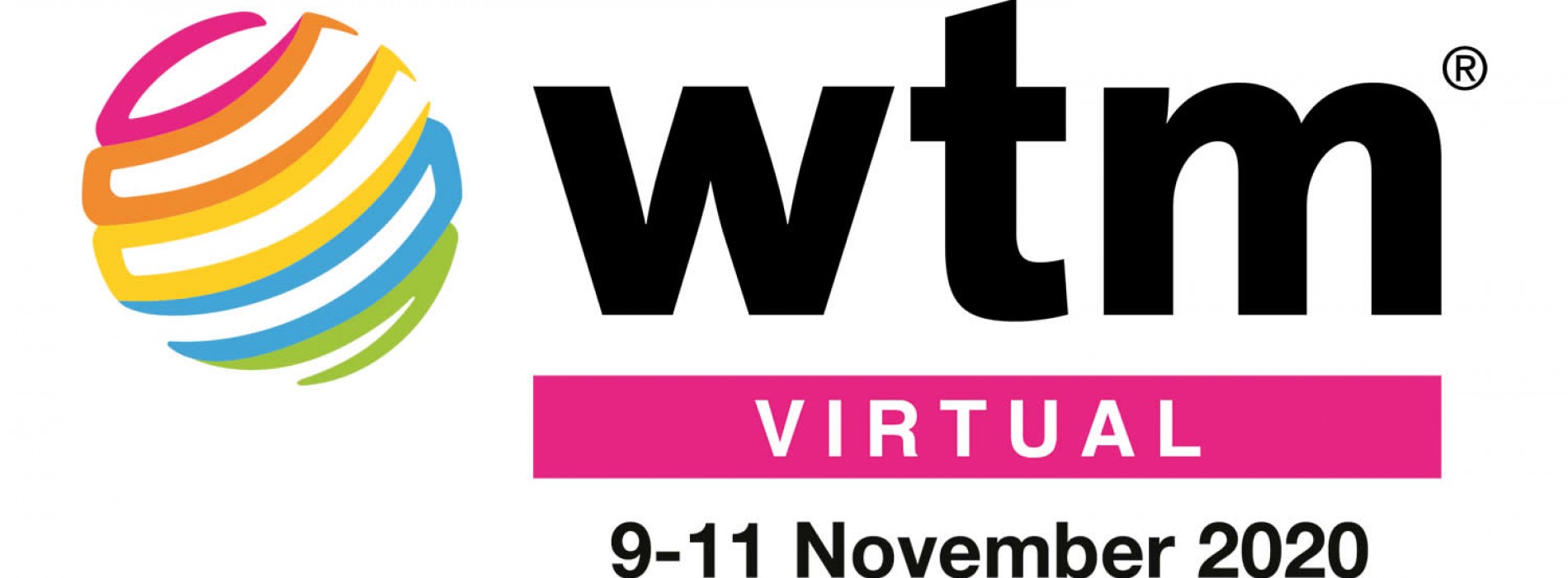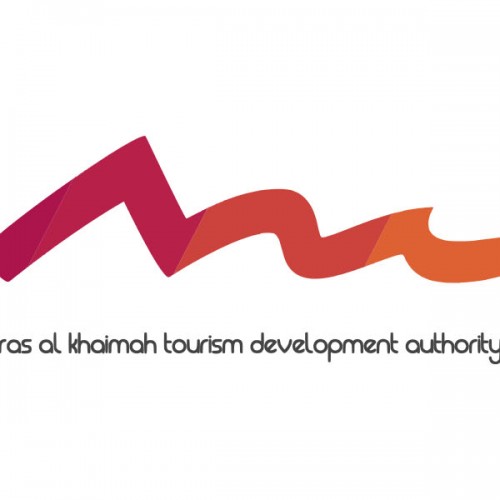The Show Must Go On!
Travel trade shows will survive the pandemic but they will not be the same. Virus-induced changes will stick with the events industry. Considering the fact that the pandemic has accelerated the adoption of technology by trade shows, the future will see a hybrid format of these events, which will combine both live and virtual shows.
2020 has been a year of unprecedented disruption across the world. The global spread of the COVID-19 pandemic has paralysed daily life and businesses. Hit hard by the pandemic and resulting lockdowns, the world economy has contracted sharply and continues to struggle to return to its pre-COVID level. Even after the removal of many restrictions, lives have not returned to the pre-pandemic normal. In fact, the pandemic has forced people to mend their ways and quickly learn new norms and tricks to keep the virus at bay while resuming work and business.
Unarguably, the travel and hospitality industry has been one of the worst affected by the pandemic. Inside the industry, trade shows became the early victims of the disruptions caused by the pandemic. Most of the world’s leading travel trade shows had to be cancelled or transformed into virtual shows. ITB Berlin, scheduled to take place in early March, had to be cancelled just before its scheduled start. Arabian Travel Market 2020, scheduled to take place in April, was also cancelled. A virtual ATM show was held from June 1 to July 3 that included live conference sessions and speed networking events. WTM London 2020 (November 9-11) will also be a purely virtual show.
For decades such mega travel trade shows have been the bedrock of global tourism marketing, with sellers and buyers meeting at designated venues and promoting their products and businesses. These shows have played a critical role in the promotion of tourist destinations and in the growth of the tourism economy. The globally growing number of such shows in recent years is testimony to the popularity and success of such shows. Although no estimate is available regarding the exact size of the travel exhibition business, such events not only promote international tourism but also directly boost the local economy by attracting exhibitors and buyers to host cities, thus adding value to local economies. Therefore, non-occurrence of such physical and live shows is a loss not only to the tourism industry but also to the economies of host cities and countries.
Today such trade shows are facing multiple challenges. The biggest challenge is striking a tricky balance between protecting lives and continuing to host live shows. Confronted with this unprecedented challenge and others, the question is, can travel trade shows survive the pandemic? Moreover, in the new normal, will trade shows ever be the same? To get answers to these pertinent questions, TnH spoke to senior executives at leading travel exhibition companies and here is what they had to say.
Shows Will Go On…
There is unanimity among stakeholders that travel trade shows, both big and small, will continue to exist even in the post-COVID-19 period. However, in the new normal, organisers of such shows will have to adopt new ways and manners of meetings and hosting events. In fact, a new format of shows has already emerged, in which technology is a key enabler. Even major travel trade show are going virtual, at least till the pandemic’s scourge is largely contained either with a vaccination or another way.
But what if the pandemic continues for a longer time, can the virtual show be a viable and sustainable substitute for an in-person show?
Danielle Curtis, Exhibition Director ME, Arabian Travel Market (ATM), said that, “Undoubtedly, the exhibitions industry is changing and it will face even more changes ahead. However, physical shows are taking place even in 2020- although given continued travel restrictions it poses difficulties in some regions to run live events. The events industry shares a fundamental foundation in hospitality, which is fundamentally a human experience and after the lockdown, people are looking forward to doing business face to face.” She stressed that where events are able to successfully open, the event organizers need to ensure that all measures are in place to ensure social distancing and contactless registration. Further, they need to ensure that all necessary safety protocols are applied by the destination and the venue where the events are held.
WTM London and ATM Dubai, both parts of Reed Exhibitions, combine face-to-face interactions with data and digital tools to organise their shows. “We know how to do business events face-to-face and virtually. We, as everybody else, just need to adapt to the environment we’re all living in for a while,” asserted Danielle Curtis.
Due to travel restrictions in place for overseas visitors and uncertainty over permission for hosting business events and conferences in the UK, Reed Exhibitions recently announced that WTM London would be a virtual-only show in 2020. This will be the first time since WTM London was launched in 1980 that there will be no live event. WTM London Virtual will take place from 9-11 November 2020.
Traditionally, in-person visits, meetings and negotiations, physical participation in seminars and cultural programmes, etc. have been key features of such travel trade shows. All these activities facilitate the marketing efforts of a large number of suppliers and sellers at one place, and also strengthen relationships between them. However, at this point when the pandemic, which necessitates physical distancing and discourages in-person interaction, continues to rage on in most parts of the world, one wonders if these events will be able to retain their relevance and usefulness.
So, are virtual meetings the new normal, or it is just a matter of time before physical shows are back in full-force?
According to David Ruetz, Head of ITB Berlin, “Whether or not there will be a return to previous formats is impossible to say right now. What has become clear in recent months is that many people, particularly in the business world, have come to realise how indispensable personal meetings are. The months and years ahead will clarify the roles that virtual content and in-person events will occupy in the future.” He further added that visitors, exhibitors and organisers will simply have to learn new ways to adapt to the new normal. For example, ITB is planning to install a traffic light system to show attendance levels in individual halls. This will allow the organizers to better control visitor flows. Accordingly, Ruetz is also confident that even under the distancing and hygiene restrictions, person-to-person contact that benefits all will be possible in the future.
Nationally, Rohit Hangal Co-Founder and Director of Sphere Travel media & Exhibitions that organizes
India International Travel Mart (IITM) explained that, “There is already a fatigue doing events in the virtual space. It is not a sustainable model, though it is a justifiable alternative under the present circumstances. The event space comes with an entire ecosystem, which will not be met only virtually. These shows not only impact the tourism industry, but in fact, holding exhibitions positively nurtures every sphere of the marketing ecosystem, irrespective of its genre. Nonetheless, virtual shows have emerged as a cost-effective tool, which can eventually complement the exhibition industry, not replace it.”
Further Hangal asserted that, “The industry supports over a million households in the country, and it cannot be wished away. As transport infrastructure like Airlines, Metros and bus travel have opened along with retail outlets, it is imperative governments treat the exhibition and event industry with the same seriousness. They should allow exhibitions to take place with strict adherence to guidelines and norms. Social distancing is a reality and exhibitions can’t be exempt. Travel shows are a big part of the industry’s marketing infrastructure and the earlier they are allowed, the faster it will catalyze the growth in arrivals.”
Yogesh Mudras, MD, Informa Markets in India (Organiser of SATTE), is also optimistic of the early return of in-person travel trade shows. He said that in many parts of the world such as China, Japan, Korea, live trade shows are still happening. Although the pandemic situation is yet to stabilize in India, Mudras is hopeful that organising events will soon be possible in the country, considering it also has the highest recovery rate of COVID patients in the world. Like Hangal, he is also of the view that physical trade shows are here to stay. “Face-to-face and in-person events are the best way to meet and network, and they will remain so. Virtual meetings and shows can never match the efficacy, convenience and importance of physical events,” says Mudras. However, he added that right now organising trade shows through virtual mode is the most preferred option, considering the risk of getting infected with the virus at physical events. According to Mudras, post-COVID-19, physical travel trade shows can’t be organised in pre-COVID manners. Post COVID-19, standards and protocols of organising shows will change. Organisers will have to accord top priority to the safety of participants. The registration process will be completely digitalized and meeting areas will have to be spacious to comply with physical distancing norms.
Informa Media organised the first edition of SATTE GenX, South Asia’s B2B Virtual Travel Expo, on 23rd September 2020. During these challenging times, SATTE GenX was an effort to provide an opportunity to the stakeholders of the Travel & Tourism industry to conduct business from the location of their choice and connect with their target audience. SATTE’s virtual show received good responses in terms of participation from exhibitors, buyers and other stakeholders. According to Mudras, as many as 120 exhibitors, many from overseas, participated in the show.
Live and Virtual Will Go Together
With large in-person events facing an uncertain future due to coronavirus restrictions such as physical distancing norms, trade shows have had to sharply adapt to serve their audiences. While trade shows were already gradually adopting technology, the pandemic has expedited this adoption in a very short span of time. As Ruetz of ITB Berlin puts it, “COVID-19 has induced organisers of trade events to undertake massive digitalization of their events to remain relevant. The pandemic is acting as a catalyst driving forward the digitalisation of trade shows.” He continues to add that, “Digitalisation has taken a giant leap forward. Registering online will become the new normal – as will be the digital collection of data upon entry to the trade show in order to facilitate contact tracing at a later date, if necessary.”
Does it mean that the travel trade show will never be the same as they were in pre-COVID times?
Is it time to stop anticipating the return of past live trade shows and embrace the new reality. Most experts are optimistic and feel that nothing can compare with in person interactions. However, in the long term, there will be some permanent changes in comparison to the way such shows used to be organised in pre-COVID times . Both in-person events and virtual shows will retain their relevance in future, even after the pandemic is gone and shows will combine virtual content and in-person formats. Ruetz predicts “In one or two years we will hopefully no longer require the current levels of physical distancing, however, the importance of digital channels will remain. Trade shows will most likely occupy a dual role and become hybrid: for those who wish to attend in-person events and for those who want to interact with virtual trade shows on their screens or mobile devices.”
David Ruetz is not alone to emphasize the permanency of technology in travel trade shows. Danielle Curtis of ATM also believes that the digital phenomenon is here to stay: “Digital platforms have grown exponentially over the past months. This means that when physical events come back, the digital will stay as a connector and complement for people who are unable to attend.” She expects that there will be an increased digital opportunity for all events moving forward, including live streaming, webinars, online networking, that can be added to enable people to join online during an exhibition. This is not new but will possibly be increased amongst shows during as well as after the pandemic.
The next ATM Dubai scheduled to take place in May 2021 gives a sneak peek of the format of a future trade show. Curtis says, “It’s still too early to know exactly what ATM 2021 will look like. However, we are working on a hybrid event format which will include both a physical and a virtual platform to expand the reach to those unable to travel and yet provide the all-important face to face interaction for those that are keen to return doing business this way. For the live ATM event, we will welcome all attendees in a safe and secure manner, adhering to all venue and governmental guidelines and recommendations.”
Finally, in order to meet new challenges, what are the new initiatives organisers of mega travel trade shows are adopting for future events?
- ITB Berlin has just launched the ITB Travel Network to make it easier to find new business partners and stay in touch with one another. This new social network for the worldwide professional travel community enables users to reach exactly the right partners that can contribute decisively to their business success, 365 days a year.
- ITB Berlin is massively increasing its hygiene measures. They are providing sanitizer dispensers, scheduling shorter cleaning intervals and employing staff to ensure these rules are observed.
- To better control visitor flows, ITB Berlin is also planning to install a traffic light system to show attendance levels in the individual halls.
- All WTM Portfolio events are virtual this year, so businesses, media, exhibitors, buyers and visitors can have virtual meetings without worrying about close interaction.
Some of the measures taken by Reed Exhibitions for its future shows include contactless badge scanning and one way systems to help everyone stay at a safe distance. Increased ventilation and hygiene are also important additions. Plus, controlling and managing the number of people in the halls due to reduced venue capacity guidelines.
You might also like
RAS AL KHAIMAH TOURISM DEVELOPMENT AUTHORITY ANNOUNCES 2022 ROADSHOW IN INDIA
Ras Al Khaimah Tourism Development Authority, representing the Emirate of Ras Al Khaimah in the United Arab Emirates, is set to host the first 2022 roadshow in India from April
Small Luxury hotels of the World™ welcomes The LaLiT London
Small Luxury Hotels of the World™ welcomes The LaLiT London. Small Luxury Hotels of the World is delighted to announce The LaLiT London as the latest addition to its collection of
Air India launches Delhi-Vienna flights
New European route to operate three times a week The service will now operate three times a week using a two-class Boeing B787 Dreamliner aircraft. Flight AI153 leaves Delhi’s Indira












